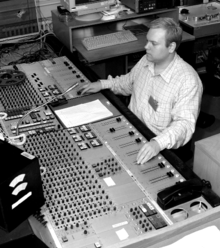Roles and Responsibilities of an Audio Engineer
– Balancing and adjusting sound sources using equalization, dynamics processing, and audio effects
– Placing microphones and setting levels for recording projects
– Mixing and reproducing sound for various media such as film, radio, television, music, and video games
– Setting up and sound checking live sound systems for concerts, theatre, sports games, and corporate events
– Working on the technical aspects of sound recording and reinforcement
Research and Development in Audio Engineering
– Inventing new technologies, software, equipment, and techniques in audio engineering
– Designing acoustical simulations and algorithms for audio signal processing
– Specifying requirements for public address systems and conducting research for video game console manufacturers
– Advancing the field through research on audible sound and other advanced areas
– Specializing in architectural acoustics
Education and Training in Audio Engineering
– Audio engineers in research and development come from backgrounds such as acoustics, computer science, and electrical engineering
– University or college audio engineering courses focus on creative use of audio and science/engineering topics
– Audio training courses provide knowledge of technologies and their application
– Audio engineers in research and development usually possess a bachelor’s or higher qualification in relevant disciplines
– Some positions, such as faculty, require a Doctor of Philosophy
Sub-disciplines in Audio Engineering
– Audio signal processing: Developing algorithms for audio manipulation and processing
– Architectural acoustics: Achieving good sound within rooms and venues
– Electroacoustics: Designing headphones, microphones, loudspeakers, and sound reproduction systems
– Musical acoustics: Researching the science of music, including instrument design and room acoustics
– Psychoacoustics: Studying how humans respond to sound and audio design
Practitioner Roles in Audio Engineering
– Various terms used to describe professionals in sound recording, reinforcement, or broadcasting
– Roles can include audio technician, sound engineer, recording engineer, and sound mixer
– Responsibilities may involve recording, editing, mixing, and mastering sound
– Audio engineers work in music production, post-production, live sound reinforcement, advertising, multimedia, and broadcasting
– In larger productions, audio engineers collaborate with record producers or directors, while in smaller productions, they may fulfill both roles Source: https://en.wikipedia.org/wiki/Audio_engineer
An audio engineer (also known as a sound engineer or recording engineer) helps to produce a recording or a live performance, balancing and adjusting sound sources using equalization, dynamics processing and audio effects, mixing, reproduction, and reinforcement of sound. Audio engineers work on the "technical aspect of recording—the placing of microphones, pre-amp knobs, the setting of levels. The physical recording of any project is done by an engineer... the nuts and bolts."

Sound engineering is increasingly seen as a creative profession where musical instruments and technology are used to produce sound for film, radio, television, music and video games. Audio engineers also set up, sound check and do live sound mixing using a mixing console and a sound reinforcement system for music concerts, theatre, sports games and corporate events.
Alternatively, audio engineer can refer to a scientist or professional engineer who holds an engineering degree and who designs, develops and builds audio or musical technology working under terms such as acoustical engineering,[citation needed] electronic/electrical engineering or (musical) signal processing.
